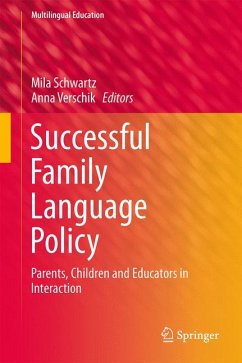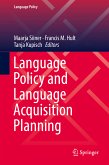In particular, the authors present novel data on successful family language practices such as faith-related literacy activities and homework sessions, as well as management, including prayer, choice of bilingual education, and links with mainstream and complementary learning, which permit the realization of language ideology within three contexts: immigrant families, inter-marriage families, and minority and majority families in conflict-ridden societies.
Dieser Download kann aus rechtlichen Gründen nur mit Rechnungsadresse in A, B, BG, CY, CZ, D, DK, EW, E, FIN, F, GR, HR, H, IRL, I, LT, L, LR, M, NL, PL, P, R, S, SLO, SK ausgeliefert werden.









